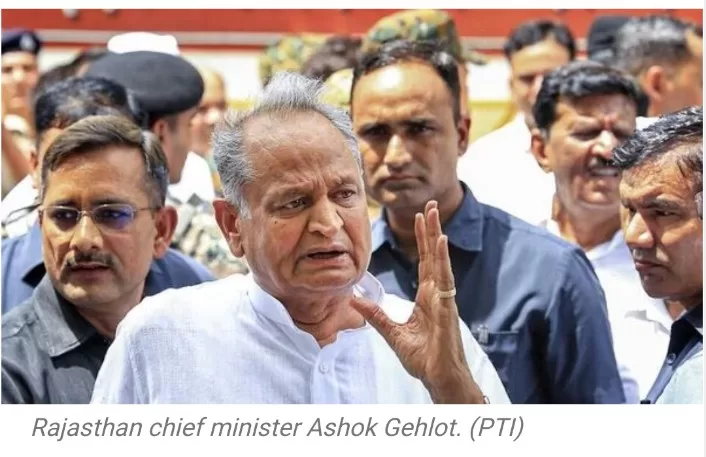Jaipur – Rajasthan’s Chief Minister, Ashok Gehlot, has declared that the state will initiate a caste-based census, aligning with the precedent set by Bihar. His statement came in the aftermath of Bihar’s release of a comprehensive caste-based survey report on October 2, facilitated by the Mahagathbandhan government led by Nitish Kumar.
Gehlot conveyed this decision to the media following a state party meeting in Jaipur.
Speaking to the press, the Rajasthan CM explained, “Congress leader Rahul Gandhi advocated for the caste census during the Congress session in Raipur, and we intend to implement it here accordingly. The Rajasthan government will conduct a caste-based census, following Bihar’s model, ensuring proportional participation based on population figures. We shall instruct the execution of this census, enabling us to devise targeted schemes for various caste groups.”
Highlighting the significance of such a caste-based census, Gehlot emphasized that comprehensive data is indispensable for effective implementation of social security measures. He noted the diverse occupational roles of different caste groups within the nation and stressed that tailored schemes can only be formulated when accurate population statistics for each caste are available.
On October 2, Bihar released the findings of its caste-based survey, revealing that the Other Backward Class (OBC) and Extremely Backward Class (EBC) together constitute 63% of the state’s population.
In response to this development, Prime Minister Modi criticized opposition parties for perpetuating caste-based divisions for six decades, labeling it a “sin” that persists even today.
Moreover, Congress leader Rahul Gandhi has echoed a similar sentiment, expressing his party’s commitment to conduct a caste-based census if they come to power at the national level. The aim, he asserted, is to benefit all sections of society, particularly the Other Backward Classes (OBCs).
In Chhattisgarh, Priyanka Gandhi Vadra, Congress General Secretary, affirmed that if Congress secures re-election in the state, they will conduct a caste census akin to Bihar’s model.
As caste-based issues continue to gain prominence in Indian politics, these developments signal a growing emphasis on data-driven policy formulation and representation for various caste groups.







